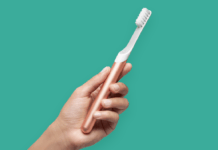The anticipation of starting your career path, especially in a field where you know you can make a significant difference, is exhilarating. Unfortunately, that feeling can come crashing down when there are workplace stressors.
Picture your most recent workday. Take a step back and assess your work routine. Do you rush into work and quickly set up to call your patient in? Do you get an opportunity to use the restroom or drink water?
Chances are, from the moment you start your day, the focus shifts from your needs to your patients’ needs. After all, this is the clinical field, and we were trained in hygiene school to prioritize our patients.
The Physical Part
Typically, my daily work schedule consists of 30 to 45 minutes of time with each patient. What is required to be done within the allocated time is set up, medical history review, radiographs, periodontal charting, OHI instructions, prophylaxis, exam, and break down of the operatory. Yes, it can be done, but I am left feeling exhausted. Realistically, the pace that we are expected to achieve is almost impossible to maintain without causing long-term physical and mental damage to one’s health.
According to a recent article published on Business Insider, the dental hygiene profession is ranked #1 as being the unhealthiest job in America.1 The data from the Occupational Information Network utilized O*NET measures of six health risks to determine the score. The overall unhealthiness score for hygienists was 72.8 out of 100.1 Our exposure to infections and diseases scored 100. The radiation exposure score was 91, and the amount of time spent sitting was 85.
If we dig further into such hazards, we can find that other factors can aid in worsening our health. For instance, offices tend to purchase low-cost PPE, such as ASTM level 1 masks, leaving us susceptible to infections. How about the dental and clinician chairs that are damaged or worn out, which contributes to our bad posture? Let us not forget about that broken dental light handle that is holding on to dear life, all thanks to tape!
The Mental Part
I worked at an office for four months that did not provide us with lunch breaks or a breakroom. If I wanted to eat, I would have to stand, and I only had five minutes to inhale my lunch.
My schedule was often double booked. The doctor had me working in all four operatories. That way, they could seat all patients, giving the illusion that they were being seen on time. I would always fall behind. I was not taking restroom breaks or drinking water. My mind and body were constantly in fight-or-flight mode.
The mental pressure led to exhaustion to the point that my friends and family were worried. As a result of being stressed, dehydrated, and poor diet, I developed health issues like cystic acne and telogen effluvium.
In our profession, we tend to put aside our own stress and emotions due to multiple external factors. Some of us are working at such a fast pace just to keep up with the demand. We do everything we can to improve our patients’ experience with us. We are breaking our necks and backs literally, and they do not have a clue! Every so often, we have difficult patients who will not cooperate throughout the appointment. They make negative questions or comments such as “How long will this take?” My personal favorite is, “I hate coming to the dentist; you guys always hurt me!”
The list goes on when it comes to the physical and mental burden of being a dental hygienist. So how can we address this matter realistically?
- Do not work for an office that does not give you a break or double books your schedule. Inform the doctor that you will require a block on your schedule to do so. At first, I thought I could tackle it since I had an assistant taking x-rays, but it is not enough time to keep up.
- Take your time. Be as thorough as you can. The faster you work, the more likely the staff and your employer will come to believe that the existing schedule is acceptable.
- Respectfully express what you need or require a change to your employer. If you find that nothing has been done, then you must spread your wings!
- Be knowledgeable about your legal rights and do your research. In New York state, federal law does not require employers to provide lunch break; however, they must compensate the employees for any meal break that is less than 20 minutes.2
- Make time to see a chiropractor so you can maintain the health of your joints and muscles. Prevention is key to reduce the risk of musculoskeletal disorders.
- It is easy said than done, but stay positive! Do not allow your situation to disrupt your peace because that mental pain can become physical.
- Loupes have been a game-changer for me. I find myself automatically readjusting my head and neck.
- Give your eyes a rest and get yearly checkups. We strain our eyes throughout the shift and can experience sensitivity to bright lights.
- We all need someone to confide in. Sometimes we just need to vent and share our frustrations.
The work is intense, and sometimes we need to remind ourselves that we are only humans! How can we care for another if our own health is deteriorating, especially now more than ever since there is a higher awareness about the importance of mental health? Let us aim to be more vocal and active about our needs so we can create a positive career for the present and future hygienists.
Before you leave, check out the Today’s RDH self-study CE courses. All courses are peer-reviewed and non-sponsored to focus solely on pure education. Click here now.
Listen to the Today’s RDH Dental Hygiene Podcast Below:
References
- Kiersz, A. The 47 Jobs That Are Most Damaging to Your Health. Business Insider. 14 Nov. 2018. Retrieved from www.businessinsider.com/most-unhealthy-jobs-in-america-2017-4
- Meal Period Guidelines. New York State Department of Labor. Retrieved from https://www.labor.ny.gov/workerprotection/laborstandards/employer/meals.shtm












